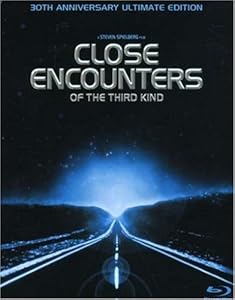 Cover via Amazon
Cover via Amazon Wagner made several contributions to classical composition, the most important of which were the leitmotif and his use of dissonance. In a nutshell, the leitmotif essentially gives each and every character in Wagner's opera their own specific musical motif, or theme music.
Wagner's concept of the leitmotif has translated well into modern film composition. In fact, every film composer knows that he or she must devise a theme (or leitmotif) for the protagonist and antagonist of the film. This musical cue gives the audience an aural "heads up" that a specific character is about to enter the scene or plays an important part.
For example, in the movie Jaws, John Williams assigns a particular motif based on minor seconds to the shark. Every time one hears this motif, the audience knows that the shark is out there, somewhere. Stephen Spielberg and John Williams (as well as Tim Burton and Danny Elfman) have a very unique director/composer relationship. Unlike many film directors, who create a film and then give the composer a couple of months to devise a film score, Spielberg has often created films with William's music in mind.
An excellent film example of a leitmotif is John William's melody for the movie Close Encounters of the Third Kind. Here, the simple five note melody has been integrated into the entire film, from beginning to end. It is part of the regular score as well as becoming a way for the aliens to communicate with the earthlings. That simple five note melody (like Wagner's
leitmotif) represents the aliens throughout the film.
Fun listening exercise:
Next time you watch a movie, see if you can pick out the themes for each major character. Once you pick out the themes, see if you can hear where the composer has hidden the melody throughout the film. For example, a composer might hint at a theme for a soldier at war when his love at home is thinking about him, or the antagonist's theme may get louder as disaster strikes the hero. Share your experience with the class.



Comments